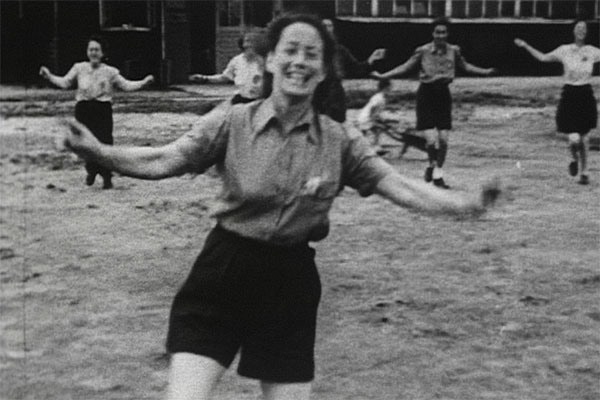
Respite resurrects film footage shot by Rudolf Breslauer, a
temporary inmate of the Dutch transit camp for Jews, Westerbork.
Commissioned by the camp's SS commandant, he films the unloading and
loading of trains, footage of prisoners processing, the work and activities
of the inmates. The surviving footage and Farocki's silent intertitle
commentary are ambiguous despite the simplicity of content and the
specificity of the filmmaker's research - from a barely visible stamp on a
suitcase he identifies not only the woman in the image, but also the date
the footage was taken and her place and date of death. What the footage
initially seems to show is a rare concentration camp relatively free of
violence, death, pain and suffering. Some smiles, theatre productions and
group exercises seem to support this impression. But of course like all
images, these are produced.
The audience's familiarity with 'conventional' images of concentration
camps will almost definitely conflict with these, giving them an aura of
death. This burden of knowledge and the weight of accepted representations
even makes Breslauer's footage seem untrustworthy. That he was a fatal
victim of the concentration camp system yet somehow was able to produce a
documentary, however compromised, of the daily life in the camp is
remarkable in itself.







